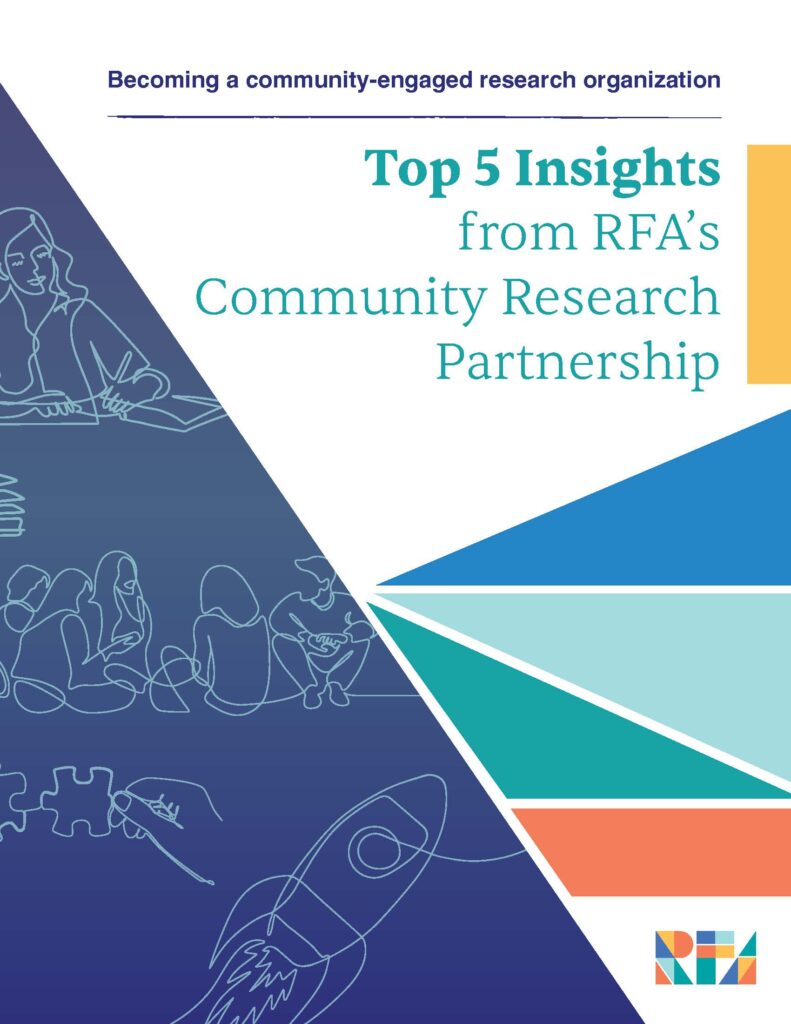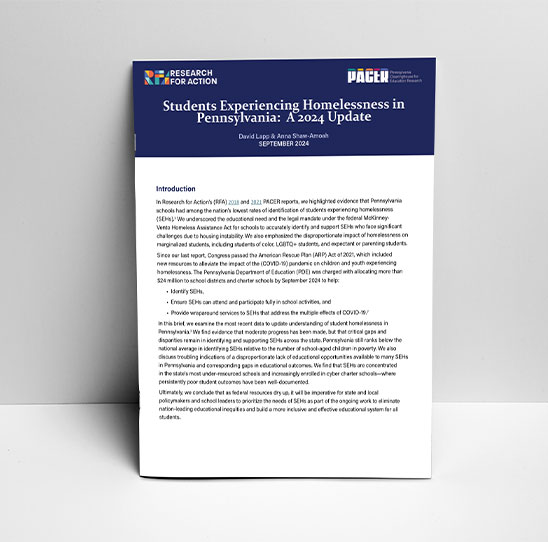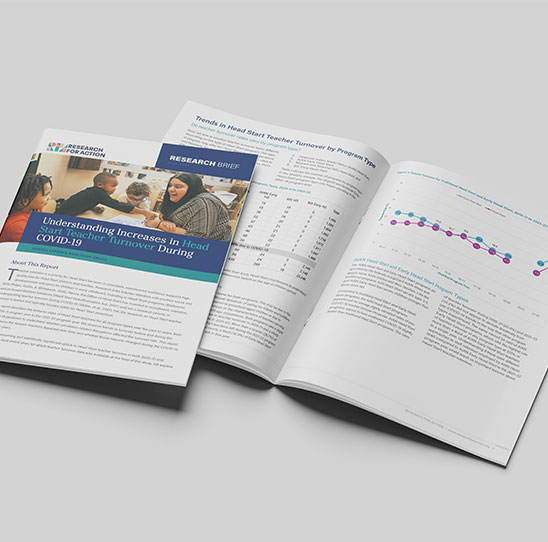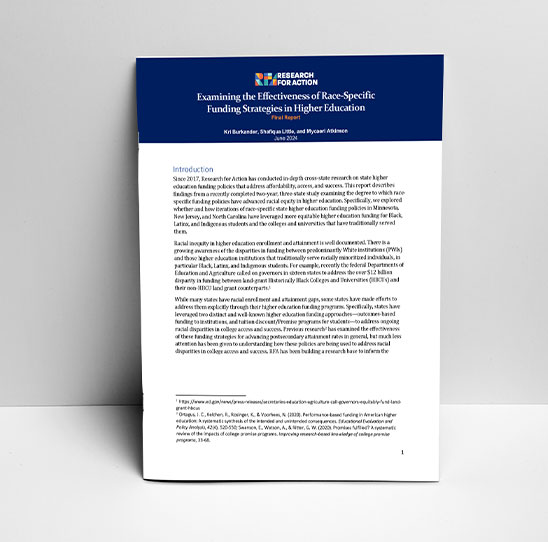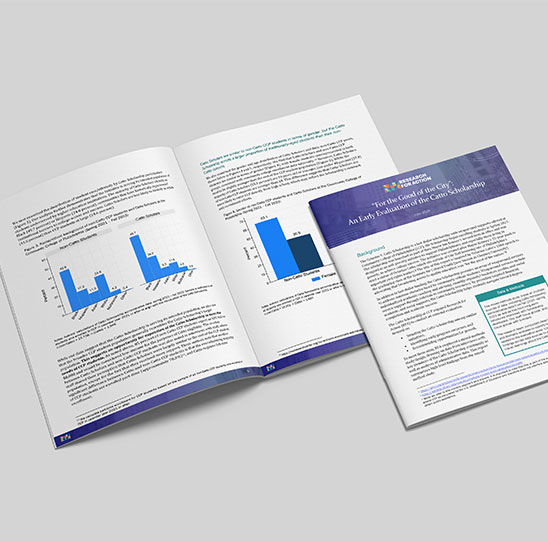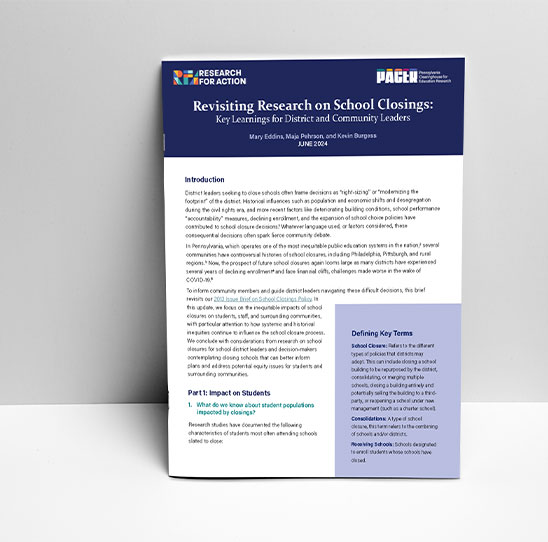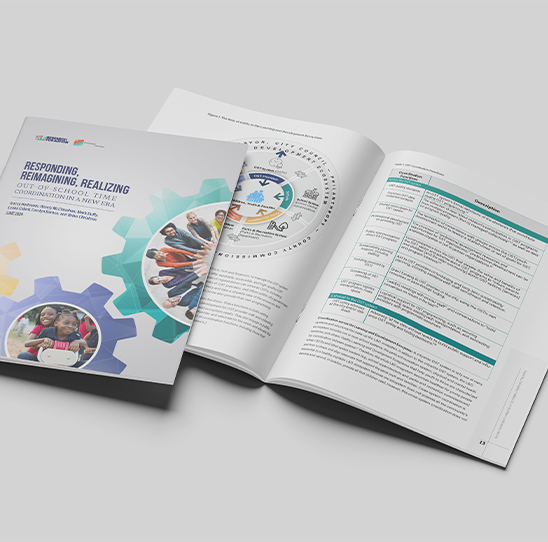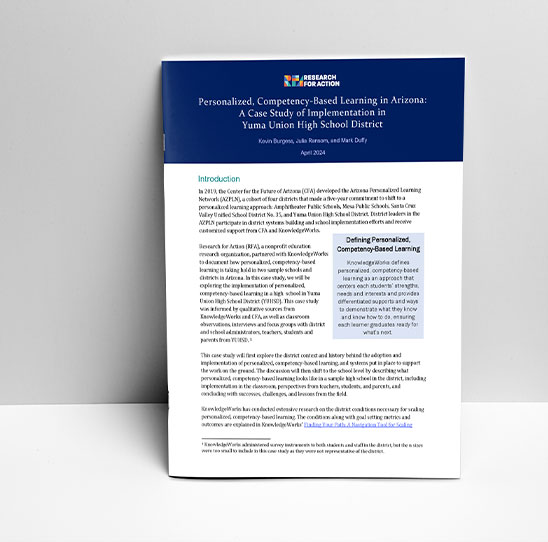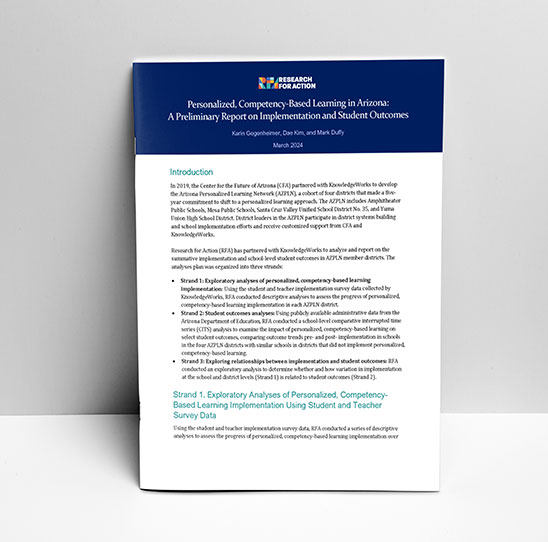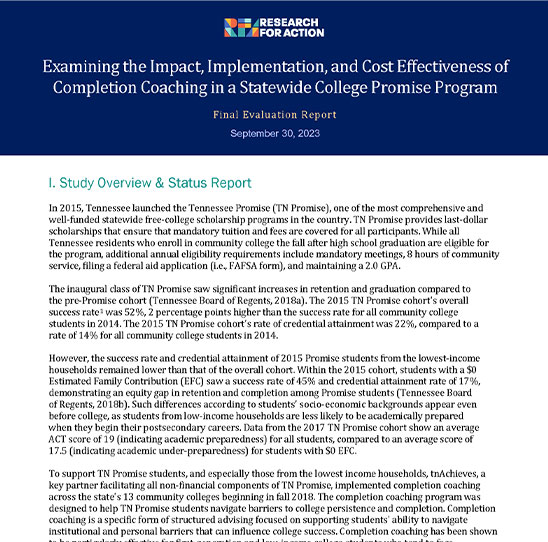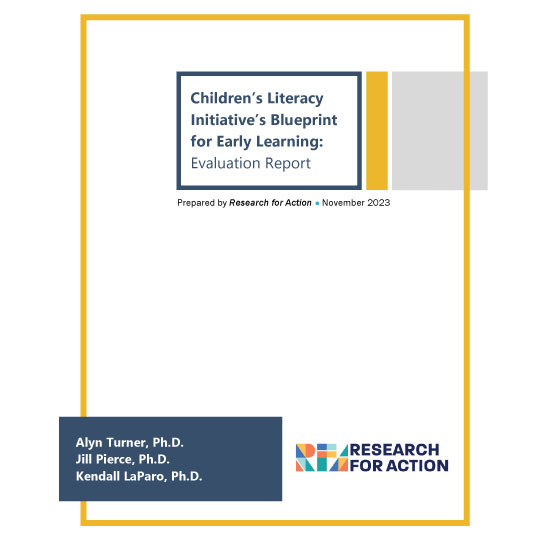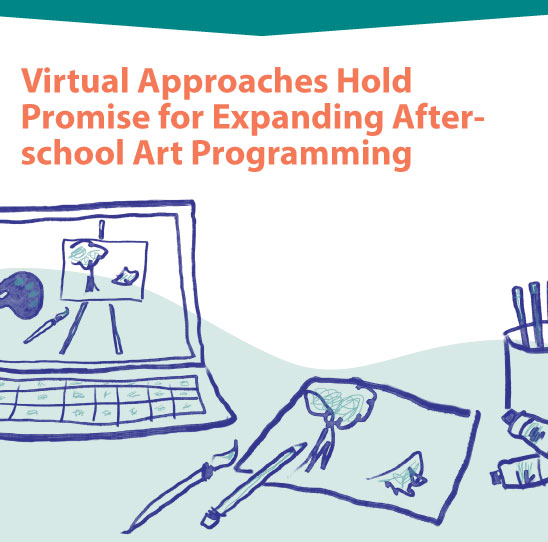We at Research for Action are committed to becoming a community-engaged research institution, with the goal of having our work be grounded in principles of community empowerment, collaboration, and social change within K-12 education. We’re pleased to release our “Top 5 Insights” report, along with an audio-doc (listen below), that chronicles this transformative journey, declares our intentions, and challenges the education research community to consider adopting this strategy.
Why Are We Doing This?
For 30 years, RFA has delivered ground-breaking education research that sheds light on the experiences of learners, educators, and school and district leaders. In those three decades, we’ve learned that our work yielded more action when it focused on elevating the voices of those who live the very experiences we study rather than standing as a siloed voice. By engaging with and elevating the voices of those most affected, we intend to innovate education research, bring important nuance to education policy debates, and arm communities with the knowledge to fuel their work.
Last year, on a mission to bridge the gap between traditional research methods and the perspectives and needs of students, families, and teachers, we launched the Community Research Partnership. With generous support from the Barra Foundation, this partnership began the shifts in the ways we conduct research with community as co-designers, co-equal participants, and co-disseminators of the work. You can see the emergent work within our Allegheny County Education Research Project and our Teach In, as examples. With school communities as active participants in the process of discovery, these communities gain power to use research to demand change.
We are, in effect, re-imagining who we are and how we do our work. If we’re going to see the systems change that our research findings say is necessary, we can’t do what we’ve always done. We can’t look for answers in the same way. We can’t engage in relationships with institutions in the same way—everything about our approach to inquiry had to be examined.
This transformation will take time. We partnered with ImpactED and Keystone Civic Ventures to help chronicle our story and draw lessons. Below are the links to the new report and audio-doc, which capture the following top 5 insights so far.
- Integration is more challenging than adding on, but it is critical for organizational change.
- It is not only who participates in the research, but how they participate that matters.
- Definitional clarity is hard but necessary.
- What got us here may not be enough to get us where we are going.
- When engaging with communities, a sense of place – and how you fit in that place – matters.
You can also listen to our audio-doc, which brings these experiences to life through the voices of the people who are leading this work, including RFA Executive Director Kate Callahan, Saxon Nelson, our Director of Community Engagement, and Rayane Alamuddin, Chief Research Officer. Tune in here as they describe the challenges and hurdles, along with the vision for the future.
